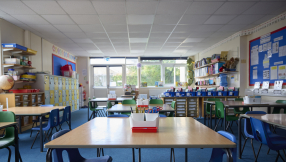Religious Schools Should be Banned, say Londoners
Nearly 11 percent said Britain should keep the religious schools it has but not allow any new Muslim, Hindu or Sikh schools, according to the YouGov/Evening Standard survey.
In addition, the poll found that 46 percent believe the basics of the Muslim faith should be part of the national curriculum for all children, compared with 43 percent who disagreed.
The survey's findings came as police continued to search a Muslim school in East Sussex that is alleged to have been used as an al Qaeda training camp.
Seven percent of survey respondents said Christian and Jewish schools should be allowed but not Muslim, Hindu or Sikh ones. Reacting to the poll's results, the Muslim Council of Britain insisted there should be equal treatment for all faith schools.
Spokesman Inayat Bunglawala said: "We should not allow any discrimination in terms of schooling. Over 50 percent of Jewish children attend Jewish schools, most of which are funded by the taxpayer.
|AD|"Should people from other minority faiths not be allowed the right to send their children to similar faith schools if they so wish?"
Shadow education secretary David Willetts said some faith schools have a better ethnic mix than some secular schools.
"They give parents a greater diversity of schools to choose from but clearly faith schools should respect mainstream British values and not undermine them," he said.
Jon Benjamin of the Board of Deputies of British Jews argued that faith schools are about giving parents and their children a choice of education. He said: "Faith schools just give a basic moral grounding. Kids can have an education that has an ethos that relates to a particular faith which nevertheless is open and worldly in its outlook."
Simon Hughes, president of the Lib Dems and chairman of governors at St James's CoE primary school in his North Southwark and Bermondsey constituency, has suggested limiting to a quarter the number of places in any school for a particular group or faith.
"There is a clear case for a new regime for education that does not put young people in faith boxes throughout their education," he said.
Overall, three quarters of people believe Muslim leaders could do significantly more to prevent the growth of extremism in their own community, with only 14 percent saying they are doing all they reasonably can.
Londoners also expressed a lack of trust in the government's ability to tackle Islamic extremism, with 69 percent saying they had no confidence or not much, compared with 26 percent who had a great deal or some confidence.
Nearly two thirds of Londoners felt that public bodies such as the police and local councils give the Muslim community "too much favourable special treatment", while 57 per cent of respondents believe London's Muslim community is "ghettoised". Mr Bunglawala added: "The Muslim Council of Britain and all leading British Muslim organisations have called for cooperation with the police against the terror threat. At the same time, we recognise that some of our Government's policies, particularly in the Middle East, have contributed towards undermining national security."
Communities minister Phil Woolas said: "Faith schools are popular with parents and the Government believes that they should have a choice on whether to send their children to them. Faith schools can play a valuable role in promoting inclusion; abolishing them wouldn't help community cohesion but hinder it."









